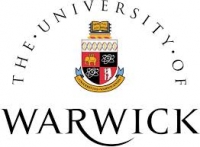






Chemistry is central to solving some of the most pressing problems facing humanity including climate change, renewable energy, health care, eliminating hunger and disease. The Department offers broad training across chemistry that will enable you to fully participate in understanding and tackling these challenges. Core material is covered in years 1 and 2 with considerable flexibility in year 3. This includes modules from within the Chemistry Department; modules from other science or language departments; Warwick Business School modules; industrial or overseas placements in Europe, the Far East, or Australia. Laboratory classes are an integral part of years 1 to 3, enhancing and developing your understanding of chemical principles. Opportunities exist for students on both BSc and MChem streams to obtain research experience under the Undergraduate Research Scholarship Scheme (URSS) in addition to the research experience MChem students get during their final year. This research experience is instrumental in not only reinforcing concepts learned in lectures and tutorials, but gives students a unique opportunity to decide if a career in research is for them. For module information please visit the module catalogue. How will I be taught? Through lectures, tutorials, workshops and practical classes; innovative teaching methods include online virtual learning and “clickers” to provide direct lecture-room feedback. Typically you will do 24 full-day experiments each year covering all chemistry disciplines and using the latest instrumentation. Feedback on progress is provided by on-line assignments and feedback on reports. There are typically 9–12 hours of lectures and workshops, supported by one or two tutorials and 10 hours of laboratory classes; 4th year MChem students undertake a piece of original research based on 21 hours practical work per week. How will I be assessed? By laboratory reports, presentations, posters and essays to monitor progress and provide regular feedback, and summative examinations each year. The final degree classification is made up from the constituent years marks with a weighting of 10:30:60% for BSc and 5:20:30:45% for MChem. What opportunities are there for research placements? Throughout your studies we offer a range of opportunities for you to gain insight and experience in research and development at Warwick, at our partner universities abroad, or in industry either in the UK or abroad. Summer placements are available in each year of your studies. We offer a one year placement in industry either as part of your third year or as an intercalated year after year 2 or 3. In addition we offer a 3–6 month placement in the spring term of your third year. We have a strong track record in helping students find placements and will look at available opportunities with you and guide you through the recruitment cycle.
| Number | Duration |
|---|---|
| 3 | year |
Employers prize our graduates for their knowledge and transferable skills. Your degree provides a firm basis for Professional Development in Industry or Academia and could lead to RSC Chartered Chemist (CChem) status. Many graduates undertake higher degrees in chemistry or go directly into careers in the chemical and pharmaceutical industry, the NHS or Finance; others undertake further training to become teachers or enter the medical profession.